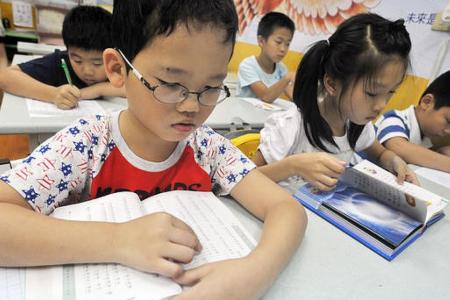Paying a premium to get an edge for their kids
Price is hardly a consideration for parents who want the best for their children
Milk powder is not the only thing parents here are willing to pay a premium for to get the "best" for their children.
The splurging does not stop at the infant stage - posh kindergartens and elite tuition centres have waiting lists despite their higher fees.
Tuition and pre-school industry veteran Kong Yew Kiin related a case in which a couple with a combined monthly income of less than $5,000 was willing to pay $5,000 for a "last-minute results transformation" course for A-level students at the tuition centre he founded, Advo Education Centre.
Direct School Admission (DSA) preparatory courses, too, have gained popularity among parents who want their children to get into top schools.
It sprouted an industry that helps students ace the highly-competitive selection process.
Catalyst Empowerment, which offers a six-hour foundation programme that teaches students how to tackle the DSA interview, has seen demand grow by 50 per cent year-on-year, said founder Gary Guwe.
He has been conducting such classes for the past eight years.
These courses cost an average of $100 to $150 an hour, he said.
Similarly, interest in Paideia Learning Academy's DSA interview preparatory workshop has spiked over the years.
The three-day workshop, which costs $580, covers topics such as interview skills and portfolio preparation. Participants also experience a mock DSA interview.
To cater to the demand, Paideia's principal, Mrs Jacqueline Chua, increased the number of workshops from eight in 2015 to 10 this year.
But not all parents who sign up for such courses are "kiasu", said Mr Guwe.
"They are normal parents who want their kids to have a less stressful time throughout the DSA process, which can be intimidating, so additional preparation is necessary," he said.
Parents who go the extra mile are not unique to Singapore.
Cram schools that offer intense preparation for entrance exams are common in China, South Korea and Japan, but they too have evolved and are now more competitive.
In Shanghai, pre-school kids are enrolled in such schools in hopes of getting into prestigious primary schools that require an entrance exam, reported Foreign Policy magazine last year.
In Seoul, the hagwon (cram school) is an 18 trillion won (S$22.2 billion) industry and there are dedicated cram schools to help students gain entry to an elite cram school.
GOOD ARRANGEMENT
National Institute of Education's (NIE) Dr Trivina Kang, who did a study on the local tuition industry in 2013, said: "Like parents in other countries, Singapore parents are concerned about whether their children are coping with school work.
"They turn to tuition providers because they feel ill-equipped or are too busy to help.
"Some parents feel that tuition is a good arrangement, because they do not want to spend the limited time with their children chasing them about schoolwork matters."
Sports coach and former national sprinter Fabian Williams, however, draws the line at unrealistic parents who place gold medals before the child's interests.
"These are your close-minded parents who only look at getting their children to do well to get into a good school, then get a good job," said the director of Fabian Williams Coaching Concepts.
Parents splurge because they are driven by the desire to see their children succeed, said National University of Singapore sociologist Tan Ern Ser.
"They believe that it is a tough world out there, and therefore their children need all the best they can get," said the associate professor.
But if done well, such prep classes and boot camps may not necessarily be a bad thing.
"At the individual level, if coaching helps to identify a child's potential and empower him or her to live up to that potential, then it is a good thing," he added.
Such classes also help children develop confidence, creativity and collaboration.
But Mr Williams thinks that parents should look at what is necessary and best for the child.
He recalled a mother who wanted her son to make it to the national junior tennis squad.
Her son was just seven but was already training three hours a day, six days a week.
"The damage cannot be undone if you treat a child like a racehorse just because you want a medal. You need to be careful," he said.
CIMB economist Song Seng Wun said that underlying factors - affluence, smaller families and the willingness of parents to spend - will ensure that these industries continue to thrive.
"Singapore is a small place, and parents who cannot keep up with the Joneses will definitely feel the pressure.
"They might not know if these premiums will work, but they would not want to take the chance."
Get The New Paper on your phone with the free TNP app. Download from the Apple App Store or Google Play Store now



